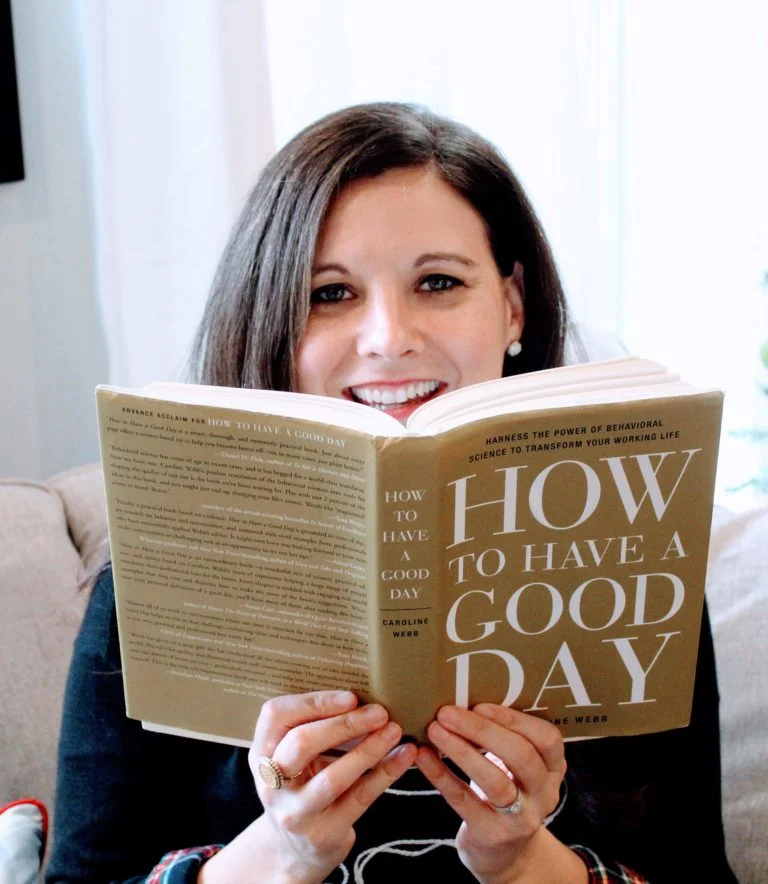How To Find Unconditional Happiness
If you look closely at the underside of my double screen computer, you’ll see a yellow sticky that says Obsessed, Playful, and Creative. Three carefully chosen words defining how I want to feel at work.
It's my work motto, posted up to remind me to notice new opportunities to feel immersed, lighthearted, and inventive.
We see what we want to see. And the science behind this is compelling.
According to Caroline Webb in How To Have A Good Day, our brain is assaulted by stimuli. There’s an automatic filtering system that lets in what’s important.
If we’re looking for a new car, we’ll notice the ads for Hondas and Toyotas that we ignored before. Smells for the local burger joint bombard us when we’re starving. And if we’re in a bad mood, we’ll notice all the little things that don’t usually irritate us.
We see anything that we’re (1) consciously prioritizing (2) worried about and (3) that reflects how we’re feeling.
Trafton Drew’s psychology study with his colleagues at Harvard’s Visual Attention Lab provides evidence that’s surprising. Putting a picture of a gorilla in a lung scan, they tested radiologists to see if they’d see it.
83% of them didn’t. If we’re not looking for something, we simply won’t notice it.
Our perception of our work environment is heavily skewed by our automatic thoughts.
How to set our mental filters to have a better day
Webb gives us three questions to run through to guide what we see in any situation. Looking at priorities, concerns, and mood, the questions are the key to feeling happier at work.
Aim- What’s top priority in this situation? What will make this situation a success in your mind?
Attitude- What concerns are on your mind right now? Do they help or hurt your priorities? How do you want to feel?
Attention- Given your priority, what do you want to focus on during the situation? Identify what you want to see more of and then be on the look out for it.
I volunteered to help organize a work party. It seemed natural given my desire to be more creative and playful at work.
The morning of the party, I set my intentions using the three A’s.
Aim- I want to prioritize connecting with my co-workers and having fun. My normal default is to prioritize perfection, which increases stress and makes me impatient and less present.
Attitude- I notice I’m starting to feel stressed about the little details. How will I balance a vase of flowers in my car while I drive? Will the caterer show up on time? Will my coworkers enjoy themselves? Normally, I’d wedge the vase of flowers so it stays upright in the car. And race around multitasking and worrying over whether the party will be good enough. If my aim is to have fun, I decide I need to let all that go, including the flowers.
Attention- I want to notice people having a good time, rather than obsess over what’s not perfect.
My priority of staying relaxed enough to have fun changed my behavior significantly.
I made different decisions. I started setting up earlier so I wasn’t rushed. I had a coworker help me, which lowered my stress level and made it more fun.
I called the caterer to confirm again and then let it go.
I could feel my lightness.
My good mood was not affected by external circumstances or other people.
This was liberating.
It challenged the view of the world I adopted as a kid, which was that happiness is conditional.
I couldn’t be happy if my family members were unhappy. As a Highly Sensitive Person, I was very sensitive to the moods of people around me. And accommodated their feelings before my own.
Webb’s intention setting helped me find a new level of positive emotion and playfulness.
At any moment, regardless of the conditions, we can find happiness. We just need to keep that mindset.
Your turn
Do you have a work motto posted under your computer screen?
TELL ME IN THE COMMENTS.
Are you filled with a series of “yes, buts”? Stick around for my next post in this series. I look at what makes it hard to keep your new mental filters on straight.
“You can resent your bald spot or be glad you have a head. ”

